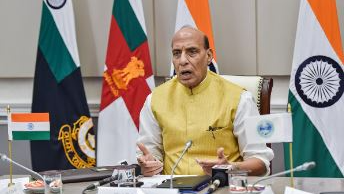In a move that symbolizes India's growing economic strength and strategic foresight, the Reserve Bank of India (RBI) has quietly repatriated a significant portion of its gold reserves, bringing home 202 tonnes (In May 100 tonnes and October 102 tonnes) of the precious metal that had been stored in the vaults of the Bank of England and the Bank for International Settlements. This operation, carried out with utmost secrecy and security, marks a significant shift in India's approach to managing its gold reserves and reflects a renewed confidence in the nation's economic stability.
Gold's journey: from crisis to confidence
This repatriation saga began in 1990, during a period of economic turmoil in India. Faced with dwindling foreign exchange reserves, the then-government, led by Prime Minister Chandra Shekhar, made the difficult decision to ship the yellow (precious) metal to the Bank of England as collateral for a crucial loan. This move, while necessary at the time, was a symbolic blow to India's economic pride.
Fast forward to 2024, and the narrative has changed dramatically. India's economy has grown significantly, and its foreign exchange reserves have swelled. The decision to bring the gold back home is a testament to this economic transformation and a powerful statement of confidence in India's future.
Where the Gold resides
The repatriated gold, transported in specialized aircraft under tight security, is now safely stored in RBI's vaults in Mumbai and Nagpur and other safe locations. This brings India's total domestic gold holdings to 510.5 tonnes, out of a total reserve of 854.73 tonnes. The remaining 344.23 tonnes are held overseas, primarily in the Bank of England and the Bank for International Settlements (BIS) in Switzerland.
Why bring the gold home?
The repatriation of gold is not merely a symbolic gesture; it carries strategic and economic significance.
Symbol of economic strength: It reflects India's remarkable economic recovery since the 1990s and its growing confidence on the global stage.
Safeguarding against uncertainty: Amidst global tensions, including the Russia-Ukraine conflict and rising instability in West Asia, holding gold domestically provides a sense of security and a hedge against potential economic downturns.
Inflation hedge: Gold is a traditional hedge against inflation, and its repatriation could help India manage inflationary pressures and maintain price stability.
Currency stability: Gold reserves can be used to stabilize the rupee and manage currency fluctuations, particularly during times of global economic volatility.
Controlling local gold prices: The RBI can utilize its domestic gold holdings to influence local gold prices, potentially curbing excessive price fluctuations and making gold more accessible to consumers.
The repatriation of gold marks a new chapter in India's economic journey. It's a testament to the country's resilience, its growing economic strength, and its strategic foresight in navigating a complex global landscape. As India continues its rise as a global economic power, its gold reserves will play a crucial role in ensuring stability, managing risks, and safeguarding the nation's financial future.
DISCLAIMER: This brief synthesizes information from various public sources and offers the author's own insights and analysis on the subject matter.







































